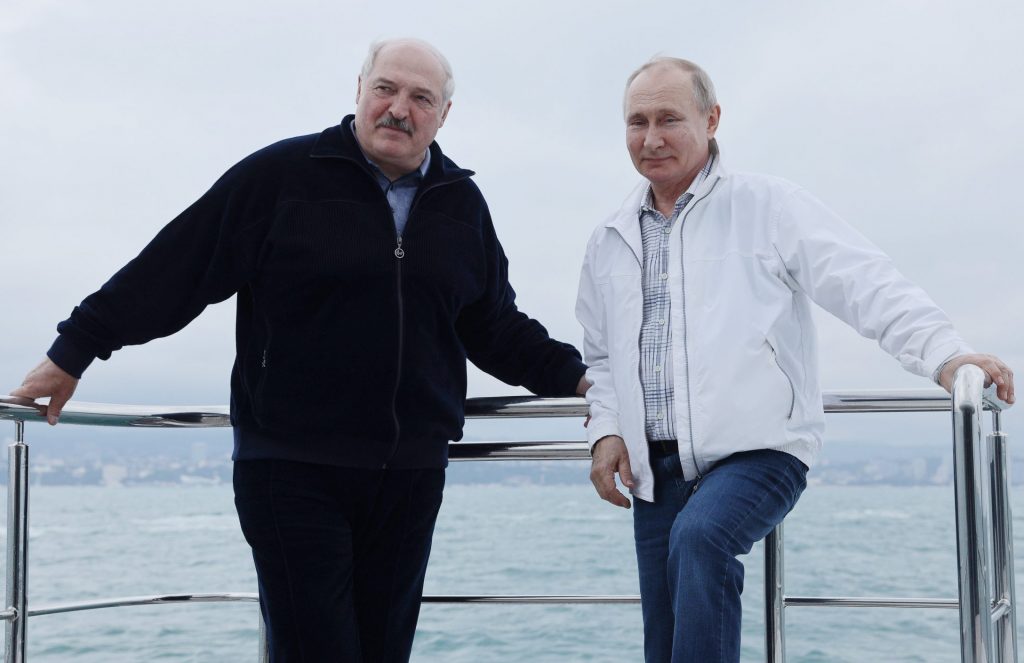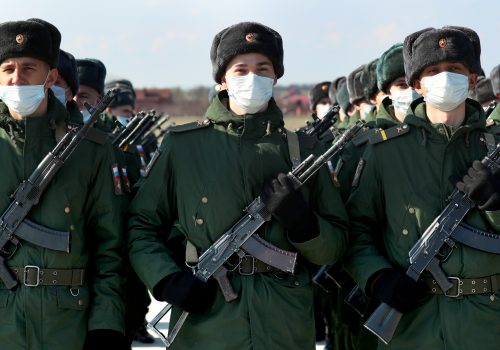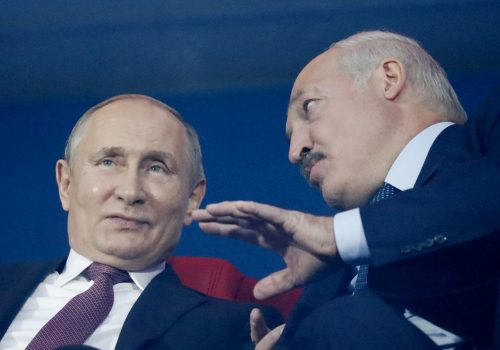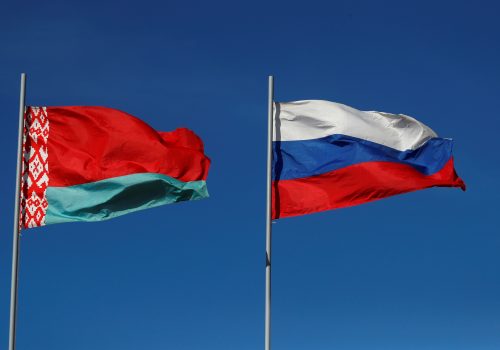Vladimir Putin has a proven skill for surreptitiously playing the arsonist and then offering his services as a firefighter.
In Ukraine, he started a war in the Donbas and then managed to get Russia recognized as a mediator in a conflict where it was both instigator and combatant. In Syria, Russia’s intervention on the side of Bashir al-Assad not only prolonged and exacerbated that war; it also bought Russia a seat at the table in negotiations over its resolution.
Is Putin about to pull off the same trick with Belarus in the aftermath of the hijacking of Ryanair Flight 4978 and the kidnapping of passengers Raman Pratasevich and Sofia Sapega? The issue is certain to come up when Putin meets US President Joe Biden in Geneva on June 16.
“It is possible that the result of the US-Russian summit may be that the Kremlin receives a degree of carte blanche to interfere in the internal affairs of Belarus in order to resolve the political crisis without any international consequences, including in the form of sanctions from the West,” Arsen Sivitsky, director of the Minsk-based Center for Strategic and Foreign Policy Studies, wrote recently.
“It is possible that Belarus can become a bargaining chip in the context of broad geopolitical bargaining between Washington and Moscow, in which the United States can agree with the Russian version of resolving the Belarusian political crisis,” he added.
It is still unclear how involved Russia was in the decision to force the May 22 Ryanair flight, which was in Belarusian airspace en route from Athens to Vilnius, to land in Minsk.
I have written in this space that a combination of several factors make such involvement highly plausible, at the very least. These factors include the integration of the Russian and Belarusian air defense systems; the deep infiltration of Russian agents in the Belarusian security services; and Moscow’s openly supportive stance toward Belarus after the fact.
In a confidential unpublished report this week, Sivitsky’s Center for Strategic and Foreign Policy Studies, which is known for having excellent sources in both Minsk and Moscow, wrote that mounting evidence suggests “the Belarusian side received information about Pratasevich’s travel from the Russian special services and decided to use it to detain the journalist.”
Moreover, in recent days, additional circumstantial evidence has surfaced suggesting that Russia was more than a bystander in this act of air piracy.
On May 26, Belarusian authorities announced they would prosecute Pratasevich’s girlfriend, Sofia Sapega, who is a Russian citizen. Sapega appeared in a video in which she made a confession that seemed to be coerced.
The Kremlin’s reaction indicates that Putin is not particularly bothered by Sapega’s plight. Putin and Lukashenka met for a two-day summit in Sochi on May 28-29, their third meeting this year, which included a friendly photo-op on a 54-meter luxury yacht.
After the summit, Kremlin spokesman Dmitry Peskov told reporters, “the topic of the Russian citizen who was detained was raised [and] naturally, we are not indifferent to her fate.” Peskov added, however, that the Kremlin would take note of the fact that Sapega also has a Belarusian residency permit. Meanwhile, Putin approved a second USD 500 million loan to Belarus.
Eurasia Center events

In the days following the summit, the Russian Foreign Ministry released a statement saying Moscow will defend Belarus and help it if the European Union imposes economic sanctions.
Putin has also instructed his Transportation Ministry to identify possible new destinations in Russia for Belarusian national carrier Belavia, which has recently been barred from European Union airspace and airports as part of the fallout from the air piracy incident.
It would, however, be a mistake to view Russia’s actions regarding the Ryanair hijacking as simple solidarity between the Putin-Lukashenka axis of autocrats. Putin’s game here appears to be much more sophisticated and bears all the hallmarks of a classic reflexive control operation.
Reflexive control is a doctrine developed by Soviet military strategists back in the 1960s that aims to compel adversaries to behave in a manner advantageous to Moscow. It does this by preemptively shaping the environment through disinformation campaigns, business ties, political meddling, establishing facts on the ground, or any combination of the above.
Putin’s strategic goal in Belarus is not necessarily outright annexation. It is to turn Belarus into a pliant and obedient client state, albeit one run by a less mercurial and troublesome figure than Lukashenka.
Since Belarus slid into political crisis last August, Russia has been steadily increasing its economic, political, and military footprint. Putin is also pressing Lukashenka to amend the Belarusian Constitution to increase the authority of the country’s parliament at the expense of the presidency. Russia has been actively putting the pieces in place to make sure Moscow controls the newly empowered post-Lukashenka legislature through pro-Kremlin parties.
If one looks at the Ryanair incident through the lens of reflexive control, the debate over whether Russia was actively involved in forcing Ryanair Flight 4978 to land in Minsk becomes less important. All Moscow needed to do was set it all in motion by, for example, providing Lukashenka with intelligence that Pratasevich was aboard a flight that would pass through Belarusian airspace.
As the ensuing international crisis turns Lukashenka into even more of an international pariah, this makes him increasingly dependent on Putin. It also offers another key benefit going into the June 16 Putin-Biden summit in Geneva. The crisis creates an opportunity for Putin to make a “concession” to Biden by pledging to ease Lukashenka out of power via the constitutional reforms which the Kremlin has already been pushing in Belarus for some time.
As Sivitsky writes, if this works, “the decision that the Kremlin imposes on Lukashenka as a result of the political crisis will in many ways not be opposed by the United States. From the outside, everything will look like some kind of democratization of Belarus after Lukashenka’s departure.”
Of course, it will be nothing of the sort. And the arsonist will, once again, have turned himself into a firefighter.
Brian Whitmore is a Nonresident Senior Fellow at The Atlantic Council’s Eurasia Center, an Adjunct Assistant Professor at The University of Texas at Arlington, and host of The Power Vertical Podcast.
Further reading
The views expressed in UkraineAlert are solely those of the authors and do not necessarily reflect the views of the Atlantic Council, its staff, or its supporters.

The Eurasia Center’s mission is to enhance transatlantic cooperation in promoting stability, democratic values and prosperity in Eurasia, from Eastern Europe and Turkey in the West to the Caucasus, Russia and Central Asia in the East.
Follow us on social media
and support our work
Image: Belarusian President Alyaksandr Lukashenka and Russian President Vladimir Putin in Sochi on May 29. (Sergei Ilyin/Russian Presidential Press Office/TASS via REUTERS)




